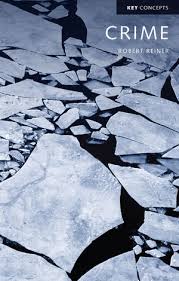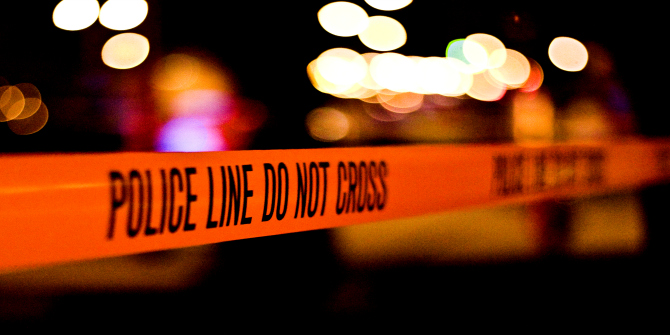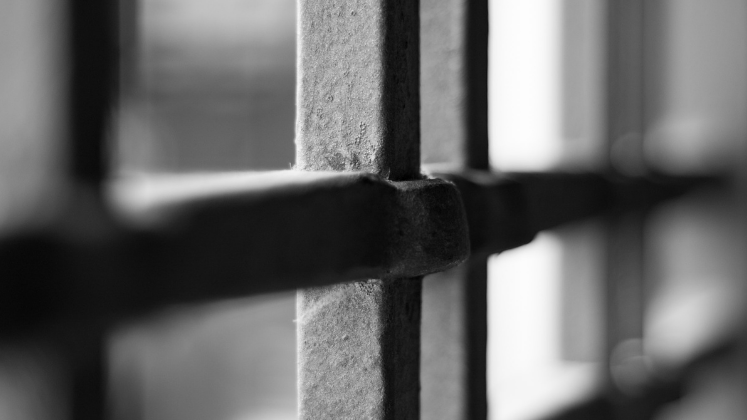In Crime, Robert Reiner offers concise yet insightful commentary on how modern democracies, such as the United Kingdom, understand the concept of crime, arguing moreover that crime can only be properly understood in relation to capitalism. Reiner’s book thus presents criminal justice as a flawed deal that tends to target the marginalised and the oppressed whilst ignoring the crimes of the powerful. Anton Moiseienko praises this as a succinct, compelling and provocative read that draws valued and timely attention to corporate and state crime.
Crime. Robert Reiner. Polity. 2016.
 The word ‘crime’ is a powerful label that society attaches to the deeds that it condemns. Its definitions are inevitably circular, for a crime is whatever is criminalised and punished. This may range from traffic offences to war crimes, from theft to libel, from adultery to flag desecration. Every state has to make choices about what to count as crime and how to prevent it. In turn, these choices speak volumes of the society that makes them. To paraphrase an old adage, tell me what you criminalise and prosecute and I will tell you who you are.
The word ‘crime’ is a powerful label that society attaches to the deeds that it condemns. Its definitions are inevitably circular, for a crime is whatever is criminalised and punished. This may range from traffic offences to war crimes, from theft to libel, from adultery to flag desecration. Every state has to make choices about what to count as crime and how to prevent it. In turn, these choices speak volumes of the society that makes them. To paraphrase an old adage, tell me what you criminalise and prosecute and I will tell you who you are.
Robert Reiner’s Crime is a concise yet insightful commentary on how modern democracies, in particular the UK, use the concept of crime and what conclusions can be gleaned from this. The book’s ambition is not so much to define the notion as to explain its real-life applications in a broader political context. As a leading UK criminologist and expert on policing, Reiner is singularly well-equipped to undertake this examination of ‘the key structuring relationship between crime and capitalism’ (11), and to defend his thesis that criminal law enforcement unfairly targets the marginalised and oppressed whilst ignoring the crimes of the powerful. The result is a compelling and lucid, although at times politically charged, account of the idea of crime.
The first two chapters offer a tour d’horizon of various perspectives on crime and lay the groundwork for Reiner’s principal argument on the nexus between crime and capitalism. The book opens with a presentation of contrasting views as to whether some conduct is ‘objectively’ criminal as opposed to crime being a purely legal construct. As the author observes, debates on that point tend to generate more heat than light: whilst the harms of crime are real and objective, it takes legislation for them to be processed by the criminal justice system.
Reiner then proceeds to discuss the moral underpinnings of criminalisation, and especially John Stuart Mill’s celebrated harm principle, which prescribes that states must only criminalise conduct that has the potential to harm other members of the polity. Although simple and elegant on the surface, the idea becomes fraught with difficulties if one thinks of protecting society from the ‘harm’ done to such intangible values as public morality. Rather than postulating a universal recipe for criminalisation, Reiner limits himself to suggesting that ‘harm’ should be defined – rather broadly – as ‘consequences that most people would not wish for themselves’ (54).
 Image Credit: Police Line/Police Tape (Tony Webster CC2.0)
Image Credit: Police Line/Police Tape (Tony Webster CC2.0)
At the heart of the book is the representation of criminal justice as a flawed package deal. On the one hand, it does process quotidian street crime that poses a threat to public order and safety. On the other, it hopelessly fails to address the grievous harms inflicted on others by the powerful. In Reiner’s view, this myopia of criminal law perpetuates class privilege. Oft-quoted is Otwin Marenin’s pithy comment that the criminal justice system dispenses ‘parking tickets and class repression’ alike (10, 32, 190). For Reiner, the balance is currently tilted towards class repression (191).
The author’s indictment of the criminal justice system weaves together several strands of narrative. For one thing, he demonstrates that law enforcement is in reality much more selective than the public may imagine. The data of 1999 show that only an estimated 45.2 per cent of all offences are reported to the police and a mere 3 per cent result in a caution or conviction; there is little reason to believe that the situation has changed considerably since then (117). Convicted offenders are therefore ‘losers in the criminal justice system’, and overwhelmingly represented by young uneducated males, often ethnic minorities (118). This is not to say, cautions Reiner, that crime is their exclusive preserve. A separate chapter spells out the argument that ‘crime is part of the lifestyle of the rich and powerful’ (102), whereas elsewhere in the book the author contends that media coverage and political debates convey a distorted picture of crime in their ‘overwhelming emphasis on serious violent crime’ (130).
As the text progresses, its polemical side becomes increasingly prominent. (And what is called criminal justice in the introduction becomes criminal ‘justice’ on the last page.) It presents the argument that much of today’s crime is a function of the anomie and inequality intrinsic to neoliberal capitalist society as opposed to social democracies (184). Reiner is forthcoming about his political stance and repeatedly invites the reader to cast a glance at British politics through its prism. In doing so, he has a delicate balance to strike between commenting on the interplay of crime and politics and defending his political beliefs as such. Whether this balance has been achieved is ultimately in the eye of the beholder, and some eyebrows might well be raised at sentences such as the following: ‘The widespread belief that Labour crashed the economy is in large part because of corporate and Conservative dominance of the media’ (196).
A particularly controversial choice is to discuss the policies of austerity in Crime’s Chapter Four on the non-criminalisation of the powerful. It argues that the reduction in welfare and attendant exacerbation of inequality in the UK has directly and predictably led to tragic suffering and deaths. Although there can be no question of any such consequences ever being intended by the government, Reiner suggests that the Coalition and Conservative cabinet ministers may have been so negligent or reckless that such actions ought to be criminalised (101). Regardless of whether one accepts the assumption that the policies of austerity were manifestly erroneous, this proposal comes dangerously close to criminalising mistakes in governance, which is something that the Law Commission warned against in its recent consultation paper on the offence of misconduct in public office (para 5.80). Yet this is a useful example of the quandaries inherent to the application of the seemingly straightforward harm principle of criminalisation.
All in all, Crime is a succinct and eminently readable work that is none the worse for its occasional streak of combativeness. Notwithstanding the variety of topics covered, Reiner’s writing is invariably clear, rich in detail and draws on a variety of theoretical and empirical studies. Its major theme – namely the call for action against corporate crime and state crime – has been vindicated by recent developments. The burgeoning FIFA corruption scandal and the trial in London of several traders for manipulating the LIBOR rate – which the book mentions as rare instances of pernicious ‘upper world crime’ generating headlines across the world – have gone ahead since March 2015, when the chapter on the crime of the powerful was drafted (86). The FIFA case has seen guilty pleas and further indictments; the US Department of Justice has issued the Yates Memorandum vowing for greater individual accountability for corporate crimes; and the Panama Papers scandal has reverberated across the world. None of these events give much cause for celebration, but they do demonstrate the growing awareness of the crimes of the elites, which is a step in the right direction.
Anton Moiseienko is a PhD candidate at the Criminal Justice Centre, Queen Mary University of London. He writes about the fight against corruption and international law.
Note: This review and interview gives the views of the author, and not the position of the LSE Review of Books blog, or of the London School of Economics.






